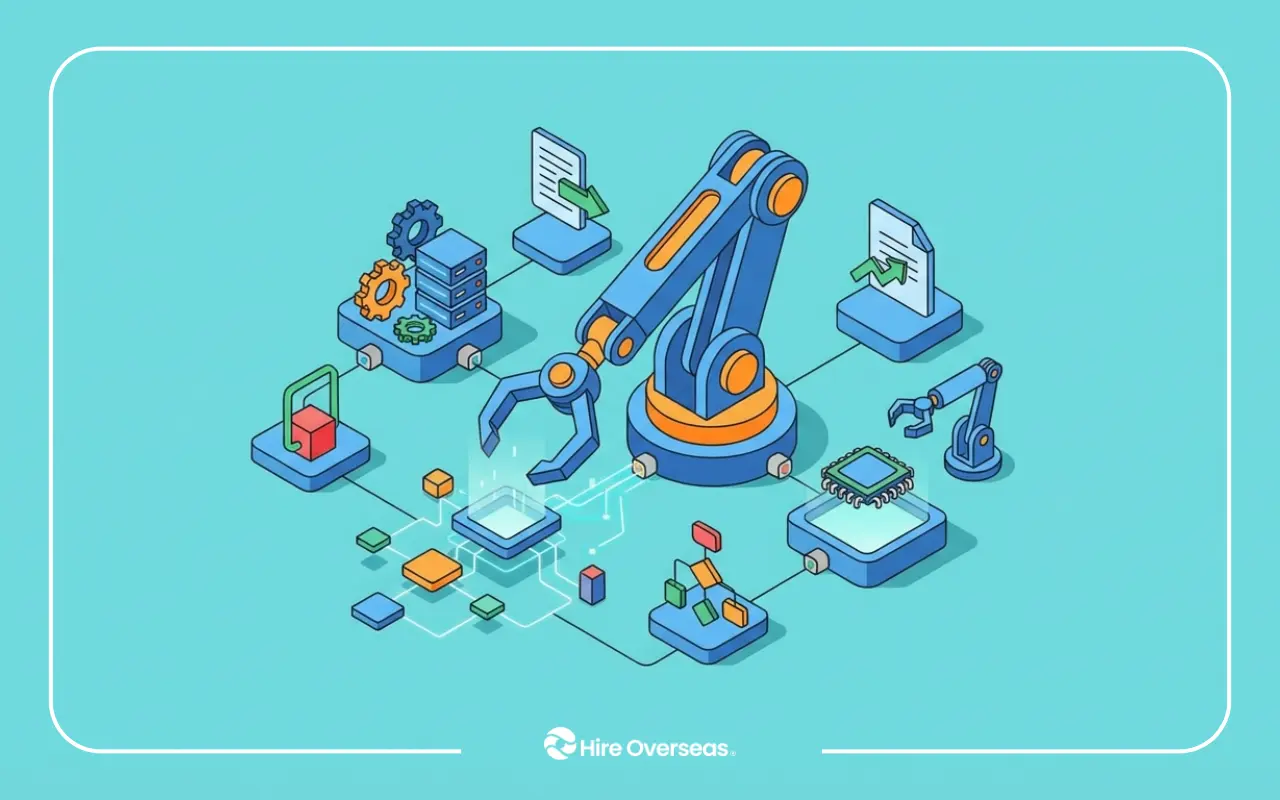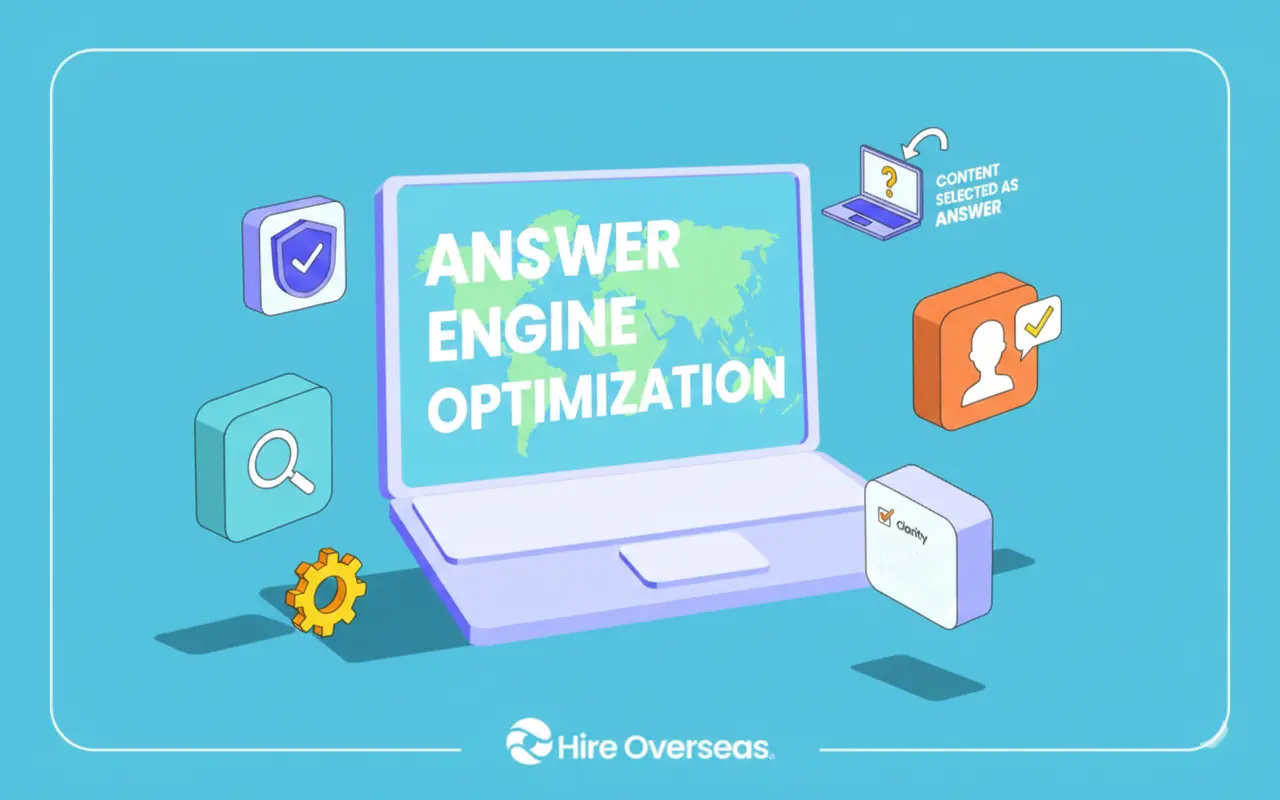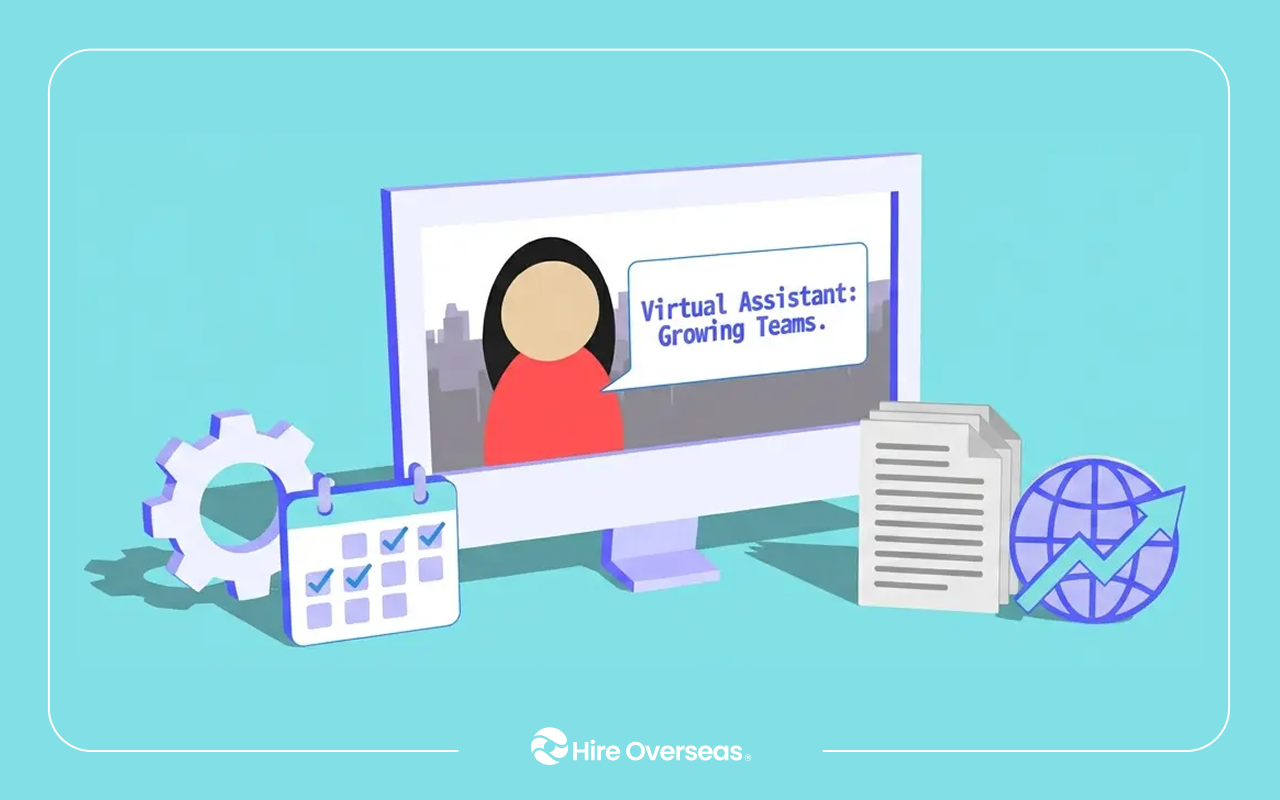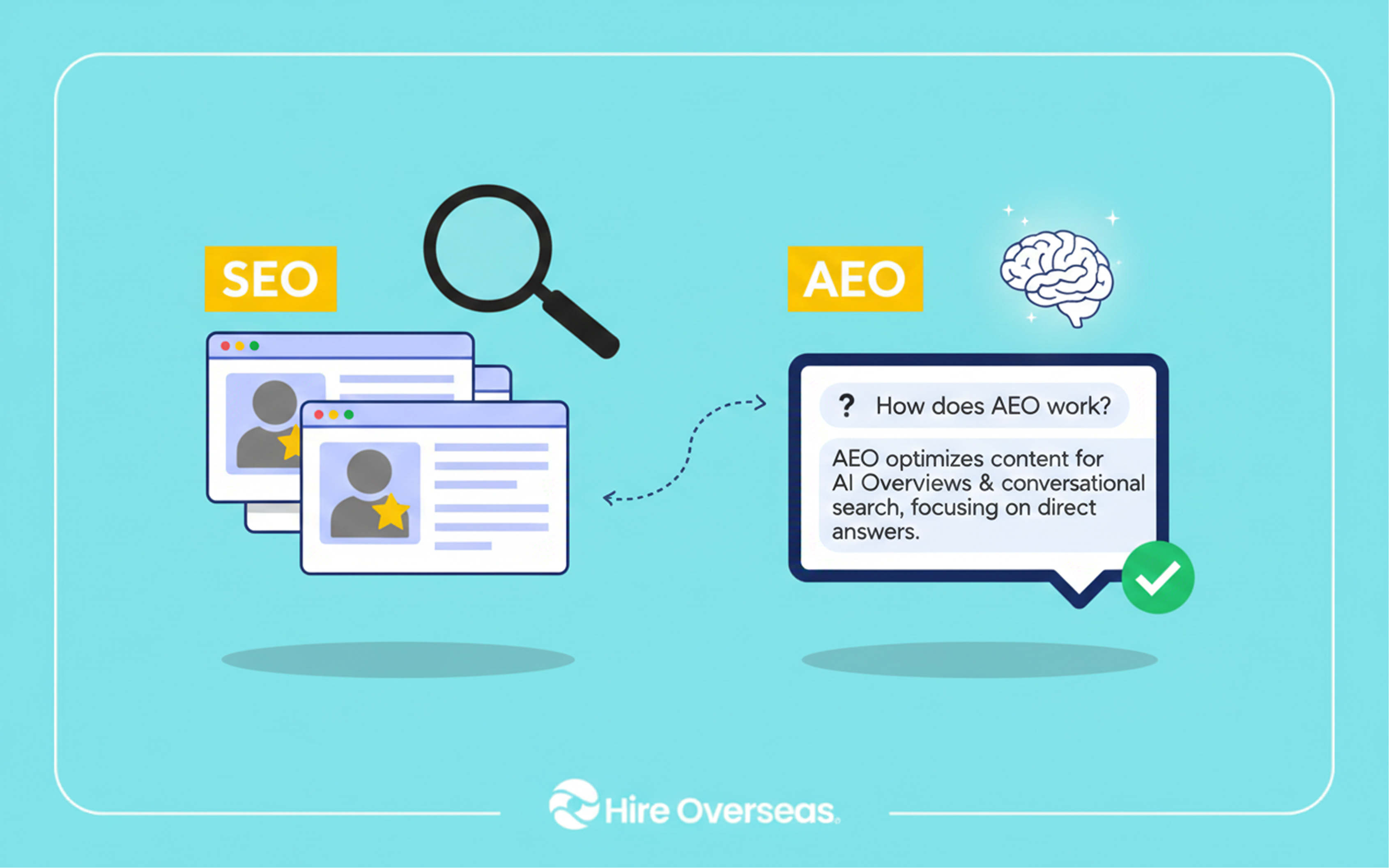The Role of the Philippines in Scaling AI Workflow Operators for Global Businesses
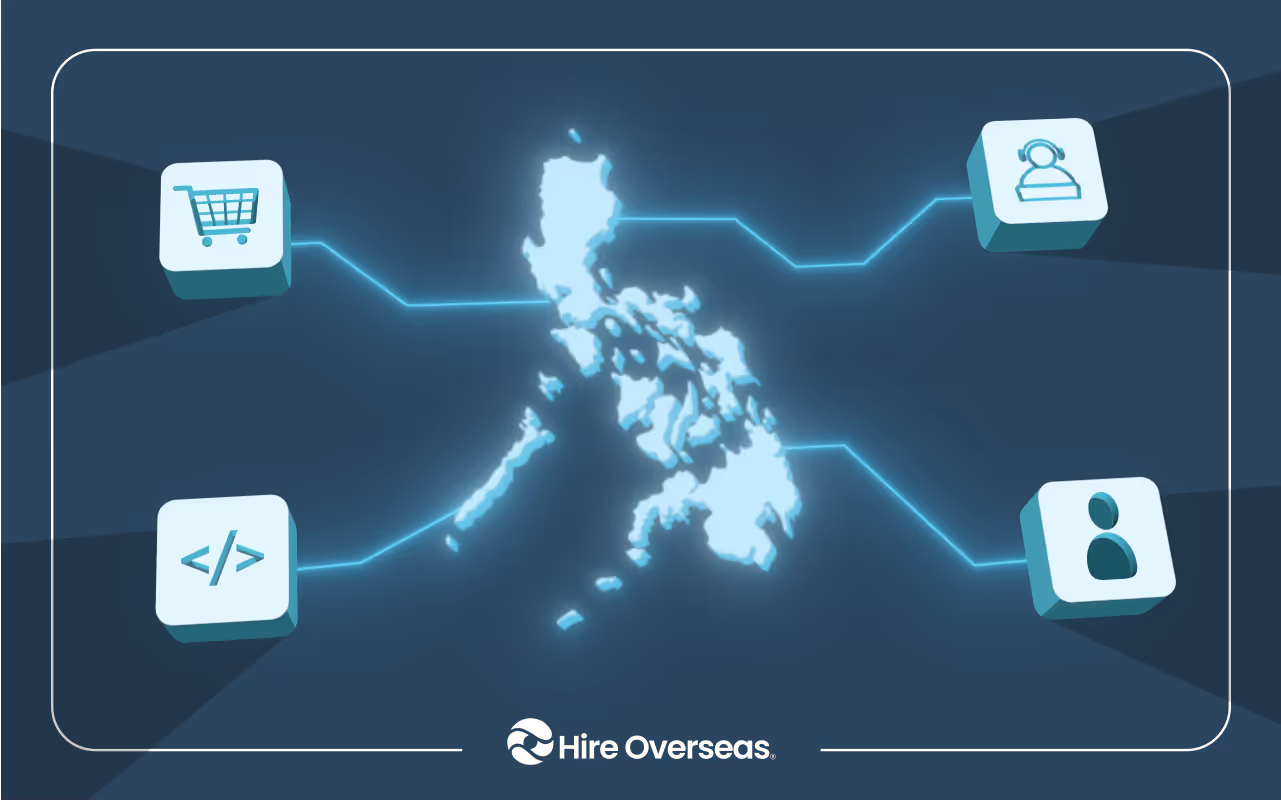
Artificial intelligence is no longer futuristic—it’s the backbone of how businesses scale, cut costs, and stay competitive. By 2030, AI may add $15 trillion to the global economy (PwC), much of it powered by AI workflow operators—systems and specialists that automate and optimize processes. As demand grows, one question stands out: who will manage these workflows? Increasingly, the answer is the Philippines. Once known for customer service outsourcing, it is now evolving into a global hub for AI workflow operations. With skilled talent, cost advantages, and adaptability, the Philippines is emerging at the center of AI-driven business transformation.
What Are AI Workflow Operators?
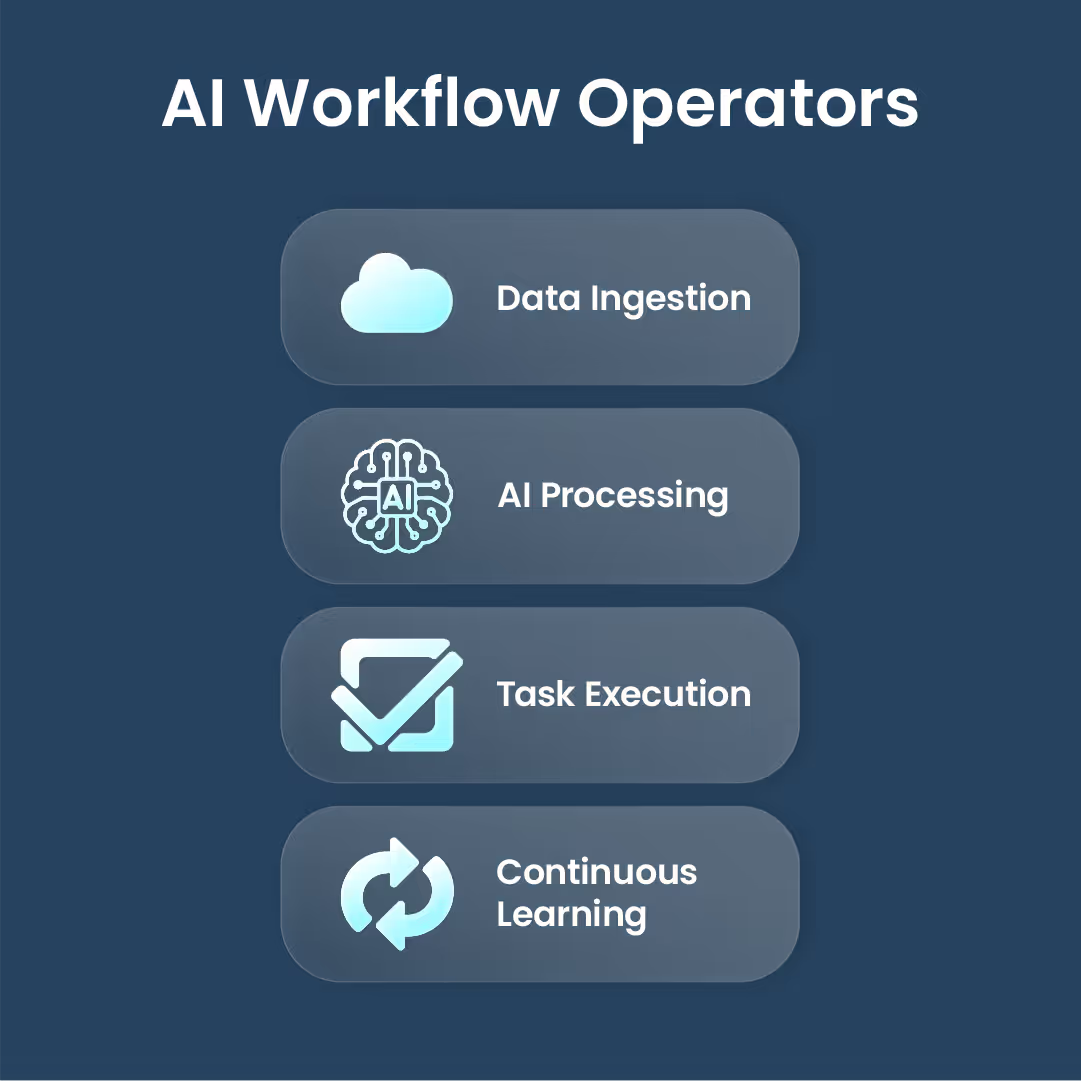
AI workflow operators—also called AI workflows or AI workflow automation—are intelligent, automated sequences designed to manage and optimize business processes. Unlike traditional rule-based systems that follow rigid instructions, AI workflow operators bring adaptability, learning, and decision-making into automation.
Here’s what sets them apart:
AI-Driven Intelligence: They leverage machine learning and natural language processing (NLP) to analyze vast amounts of data, detect patterns, and execute tasks intelligently.
Contextual Understanding: Instead of relying solely on “if-this-then-that” rules, they interpret real-world context, enabling more nuanced and accurate actions.
End-to-End Automation: From data ingestion and analysis to decision-making and task execution, AI workflows can handle the entire process without requiring manual intervention.
Continuous Learning: Over time, they refine their performance, becoming more accurate and efficient as they learn from outcomes and feedback.
Real-World Examples of AI Workflow Operators
Human Resources (HR): Automating resume screening, shortlisting candidates, scheduling interviews, and sending personalized follow-up emails.
Information Technology (IT): Streamlining ticket classification, automatically provisioning software for new employees, and executing system updates.
Customer Support: Transcribing customer calls, summarizing chat sessions, and powering chatbots to deliver fast, context-aware responses.
E-Commerce: Categorizing products, predicting customer preferences, and automating order fulfillment processes.
In essence, AI workflow operators act as the connective tissue between raw data, intelligent decision-making, and automated execution. They don’t just save time—they transform workflows into adaptive, learning-driven systems that scale with your business needs.
How AI Workflow Operators Work
AI workflow operators follow a structured sequence that combines automation with intelligence. Here’s a simplified breakdown:
1. Data Ingestion – The system gathers information from multiple sources such as databases, emails, CRMs, or cloud platforms.
2. AI Processing – Machine learning models and NLP tools analyze the data, identify patterns, and interpret context.
3. Task Execution – Based on AI-driven decisions, the workflow automatically performs tasks—like classifying tickets, updating records, or sending notifications.
4. Continuous Improvement – The system learns from each outcome, refining accuracy and efficiency over time.
Why Businesses Choose the Philippines for AI Workflow Scaling
The Philippine outsourcing sector is no longer just about low-cost customer service, it's evolving into a center for AI workflows, machine learning work, data annotation, and end-to-end intelligent operations. Below are the key reasons, now supported by recent statistics and real-world cases.
Access to Highly Skilled AI & ML Talent
Filipino professionals are no longer confined to traditional outsourcing tasks—they are increasingly competent in advanced areas such as data annotation, dataset preparation, machine learning model monitoring, and workflow optimization. Supported by universities and private training programs expanding in AI, data science, and automation, the Philippines continues to build a future-ready talent pool.
The Specialized Capabilities Behind Filipino AI Talent
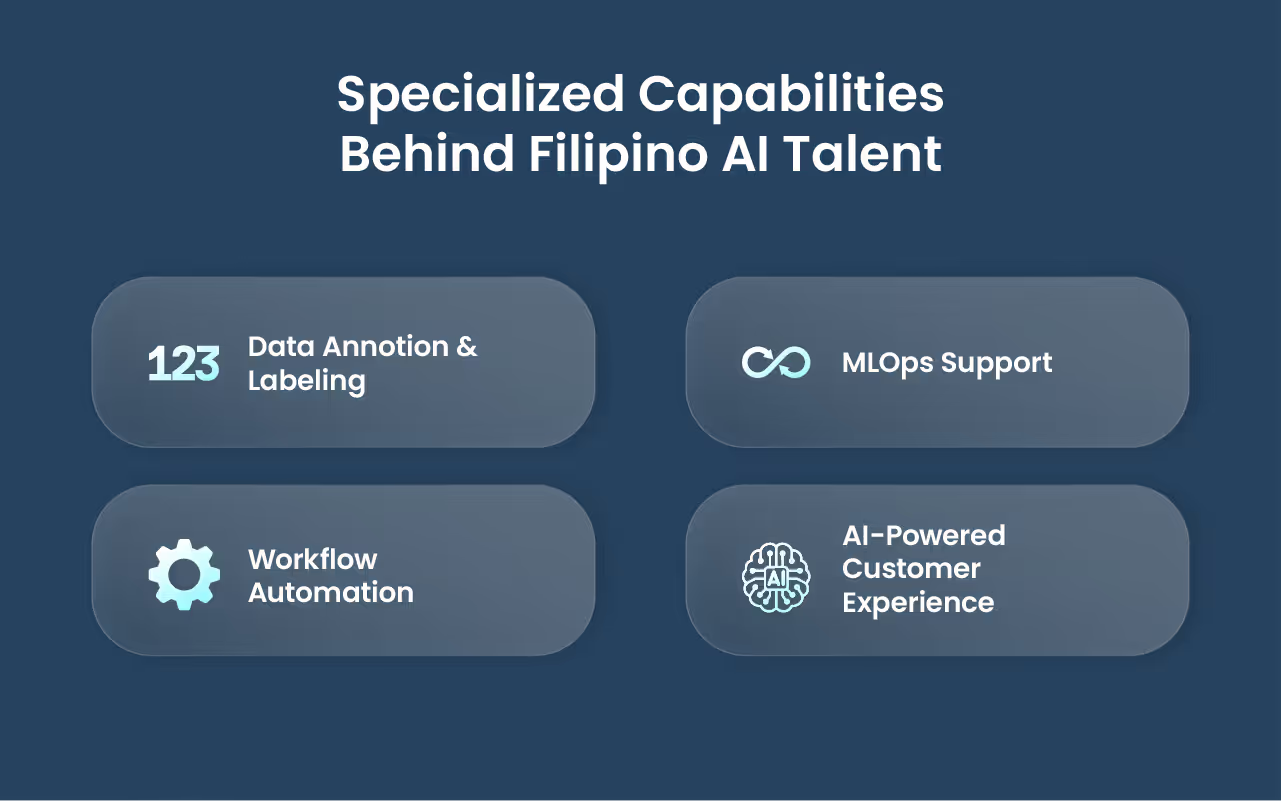
This strong foundation translates into specialized expertise that directly supports global AI workflow operations. Filipino AI professionals bring depth across critical functions, including:
- Data Annotation & Labeling – Image/video tagging, NLP text labeling, and dataset structuring to train accurate AI models.
- Machine Learning (MLOps) Support – Dataset preparation, model monitoring, and quality assurance to keep ML systems running smoothly.
- Workflow Automation & Optimization – Applying robotic process automation (RPA) and AI integration to streamline business processes.
- AI-Powered Customer Experience – Chatbots, call transcription, predictive analytics, and real-time agent assistance to elevate CX operations.
Together, these capabilities show that outsourcing to the Philippines isn’t just about filling roles—it’s about building a versatile AI workforce capable of managing end-to-end workflows at scale. These strengths are already transforming industries in practice, as demonstrated in the following real-world use cases.
Want to dive deeper into the unique strengths of Filipino AI specialists? Read more about Filipino AI experts here.
Significant Cost Savings via AI Process Outsourcing
Outsourcing entire AI workflows (or parts of them) to the Philippines can reduce operational costs by as much as 70% compared to in-house operations in high-cost countries. These savings allow businesses to reinvest in innovation while maintaining 24/7 coverage.
Reliability, Scalability & English Fluency
The offshore AI workforce in the Philippines is known for professionalism, scalability, and strong English communication skills. This makes collaboration across global teams seamless while enabling around-the-clock AI operations.
Growing Depth in Machine Learning & Advanced AI Tasks
Filipino AI specialists are moving beyond entry-level workflows to handle algorithm performance monitoring, anomaly detection, and continuous retraining. This shift allows companies to outsource not just repetitive tasks but also critical AI operations that demand expertise.
Use Cases of AI Workflow Operators Supported from the Philippines
AI workflow operators located in the Philippines are already enabling businesses across industries to scale more efficiently—automating repetitive work, improving accuracy, and freeing up human workers to focus on higher-value tasks. Below are elaborated use cases with real‐world data to show how this works in practice.
Human Resources: Recruitment, Onboarding & Candidate Engagement
Many companies in the Philippines are adopting AI in HR to reduce recruitment costs and speed up hiring. For example, according to a report by Nucamp Philippines, AI-HR tools in 2025 are helping local HR teams reduce recruitment costs by about 35%, speed up time-to-hire by about 45%, and automate up to 82% of routine administrative HR tasks.
AI workflows here include resume screening (filtering out unqualified applicants), using chatbots to engage candidates (answering FAQs, scheduling interviews), and automating the onboarding process (sending forms, setting up accounts, etc.).
IT Operations: Provisioning, Monitoring & Maintenance
In Philippine BPO / IT-BPM firms, AI and automation were increasingly used to monitor system performance, detect failures, and enforce updates or patches automatically. The IT-BPM industry in the Philippines grew by around 7% in 2024 despite concerns about AI replacing jobs—partly because firms used AI to augment IT operations rather than replace them.
For example, BPO companies implemented tools to classify tickets automatically, route them to the correct teams, provision new software and user accounts, and monitor system health metrics to trigger proactive maintenance.
Customer Service: Voice/Text Handling & Smart Assistants
Philippine BPO providers have been early adopters of AI to enhance customer support operations. Many firms now integrate agent-assist tools, chatbots, NLP-driven IVR (Interactive Voice Response) systems, predictive analytics, and workflow automation to improve both efficiency and customer satisfaction. These AI-driven tools help transcribe calls, summarize interactions, and provide real-time support to human agents, resulting in faster resolution times and improved client experiences.
E-Commerce: Order Processing, Product Categorization & Personalized Promotions
E-commerce in the Philippines is embracing AI and outsourcing to improve customer experience and internal operations. For instance, AI is used to categorize thousands of products, classify images, automate returns, and enable personalized marketing optimization. A Philippine Business Group article describes how AI & VR are being used by e-commerce outsourcing providers to improve sales and customer experience.
Also, sector-wide statistics show that AI adoption in BPO and outsourcing is not just confined to simple tasks. Many e-commerce firms use AI for predictive analytics and automation in their customer experience and back-office flows. (Philippine IT-BPM reports growth in roles involving data analytics and AI adoption for non-voice operations.)
What This Means for AI Workflow Outsourcing
The evolution of the Philippines from a call center hub to a leader in AI workflow outsourcing highlights a bigger trend: outsourcing is no longer just about saving costs—it’s about building future-ready capabilities.
For global businesses, this shift means:
Strategic Advantage: Filipino AI specialists aren’t limited to repetitive tasks; they’re managing workflows that keep HR, IT, customer service, and e-commerce running at scale.
Scalability on Demand: Offshore AI teams in the Philippines allow companies to expand or contract capacity as needed, without long hiring cycles or infrastructure overhead.
Competitive Resilience: By outsourcing AI workflows, companies gain both efficiency and agility—freeing in-house teams to focus on innovation while offshore teams ensure continuity.
Future-Proof Operations: With growing Filipino expertise in machine learning and AI-driven automation, businesses outsourcing to the Philippines position themselves to adapt quickly as AI capabilities advance.
In short, outsourcing to the Philippines is evolving from a cost-saving tactic into a strategic partnership for scaling AI-powered operations worldwide.
AI Workflow Tools Filipino Experts Use
Filipino AI workflow operators are trained on specialized platforms that enable them to design, automate, and manage intelligent business processes. These tools connect data, AI models, and task execution into seamless workflows that scale with business needs.
By mastering these platforms, Filipino AI workflow operators ensure companies don’t just adopt automation, they build resilient, end-to-end AI workflows that learn, adapt, and scale with business growth.
How to Find Filipino AI Talent Skilled in AI Workflow Operators
As demand for AI workflows grows, businesses need more than general outsourcing—they need access to Filipino specialists trained in AI workflow operations. Finding this talent requires a focused approach:
Tap Into AI-Focused Talent Pools
The Philippines has a growing base of professionals trained in AI, machine learning, and data science through universities, coding bootcamps, and industry-led training programs. Many graduates now specialize in workflow automation, data annotation, and model operations.
Leverage Niche Outsourcing Providers
Traditional BPO firms focus on customer service and back-office roles. To find AI workflow operators, partner with outsourcing companies that specialize in AI process outsourcing and have recruitment pipelines tailored to AI skill sets.
Screen for Workflow-Specific Experience
Not all AI talent has experience in workflow automation. When evaluating candidates, look for:
- Familiarity with data annotation platforms (e.g., Labelbox, Supervisely, Scale AI)
- Knowledge of automation tools (e.g., UiPath, Zapier, RPA frameworks)
- Background in MLOps practices, such as monitoring, retraining, and performance optimization
- Hands-on projects in customer service automation or e-commerce AI workflows
Use Recruitment Partners Who Vet for AI
Agencies like Hire Overseas specialize in matching global businesses with Filipino AI specialists. Their vetting process goes beyond general skills—they test for AI workflow competencies, ensuring candidates can handle end-to-end automation, contextual decision-making, and continuous improvement processes.
Prioritize Continuous Upskilling
AI evolves rapidly, so it’s not just about finding the right talent today but ensuring they grow with your business. Filipino AI specialists engaged through training-driven partners often have access to AI bootcamps and continuous education programs, keeping them aligned with the latest tools and workflows.
By focusing on workflow-specific expertise and working with partners who understand the AI talent landscape in the Philippines, companies can quickly build teams that deliver intelligent, scalable automation.
Looking to build your own AI team? Here’s a complete guide on how to hire AI talent in the Philippines.
How Hire Overseas Vets Filipino AI Talent
One of the biggest challenges in outsourcing isn’t just finding talent—it’s finding the right talent. When it comes to AI workflows, businesses need specialists who understand not only the technical side of machine learning and automation but also the operational requirements of global companies. That’s where Hire Overseas stands out. Here’s how Hire Overseas ensures you get access to world-class Filipino AI talent:
Rigorous Screening Process
Every candidate goes through a multi-step vetting process that includes technical assessments, coding challenges, data annotation accuracy tests, and workflow automation simulations. This ensures that only those with the right technical proficiency move forward.
AI-Specific Skill Benchmarking
Unlike general outsourcing agencies, Hire Overseas benchmarks candidates specifically for AI-focused roles—from data annotation and NLP labeling to model monitoring and workflow optimization. Each candidate is evaluated against global AI standards to guarantee competency.
Cultural & Communication Fit
Technical expertise alone isn’t enough. Hire Overseas also screens for English proficiency, cultural alignment, and problem-solving ability—traits that are crucial for working seamlessly with international teams.
Continuous Upskilling
Because AI is constantly evolving, Hire Overseas invests heavily in ongoing education to keep teams ahead of the curve. We run specialized AI training bootcamps that cover the latest AI platforms, MLOps practices, data annotation standards, and workflow automation tools. This ensures your offshore AI team doesn’t just maintain skills but continuously grows with your business needs.
Customized Matching to Your Business Needs
Instead of providing generic staff, Hire Overseas matches you with Filipino AI specialists tailored to your specific workflows—whether you need annotation teams, machine learning support, or AI-powered customer service operators.
By combining technical rigor with cultural fit and ongoing training, Hire Overseas transforms outsourcing into a strategic partnership. The result: a reliable, scalable, and future-ready offshore AI team in the Philippines that aligns with your company’s long-term goals.
The Philippines as the Hub for AI Workflow Outsourcing
The rise of AI workflow operators is transforming HR, IT, customer service, and e-commerce. Companies now rely on intelligent systems—and the experts who run them—to stay competitive in a digital-first world.
The Philippines has become a key partner in this shift, with AI-trained specialists skilled in leading workflow tools and capable of scaling teams quickly. Filipino experts go beyond traditional outsourcing, building and optimizing the AI workflows that power modern enterprises.
For businesses, this offers more than cost savings—it’s access to a future-ready offshore AI workforce. With partners like Hire Overseas, companies gain a strategic ally to scale operations today and prepare for tomorrow’s AI-driven growth.
The future of AI outsourcing starts here. Build your offshore AI team today.
FAQs About The Philippines’ Role in AI Workflow Operators
How does Filipino AI talent compare with other outsourcing destinations?
Filipino AI specialists stand out for their adaptability, cultural compatibility with Western businesses, and advanced training in areas like data annotation, MLOps, and workflow automation. Compared to other regions, the Philippines offers a balance of technical expertise and cost efficiency.
How do Philippine outsourcing firms ensure security and compliance in AI workflows?
Many AI outsourcing providers in the Philippines follow strict global standards, including GDPR, HIPAA, ISO, and SOC 2 compliance. Teams are trained to safeguard sensitive data while maintaining transparency and accountability in AI-driven operations.
What does the future look like for AI workflow outsourcing in the Philippines?
The Philippines is projected to expand its role as a global AI hub, moving beyond annotation and automation into advanced areas like predictive modeling, anomaly detection, and AI-powered customer experience. This future-readiness ensures long-term value for companies investing in Filipino AI workflow operators.
Unlock Global Talent with Ease
Hire Overseas streamlines your hiring process from start to finish, connecting you with top global talent.
Unlock Global Talent with Ease
Hire Overseas streamlines your hiring process from start to finish, connecting you with top global talent.

